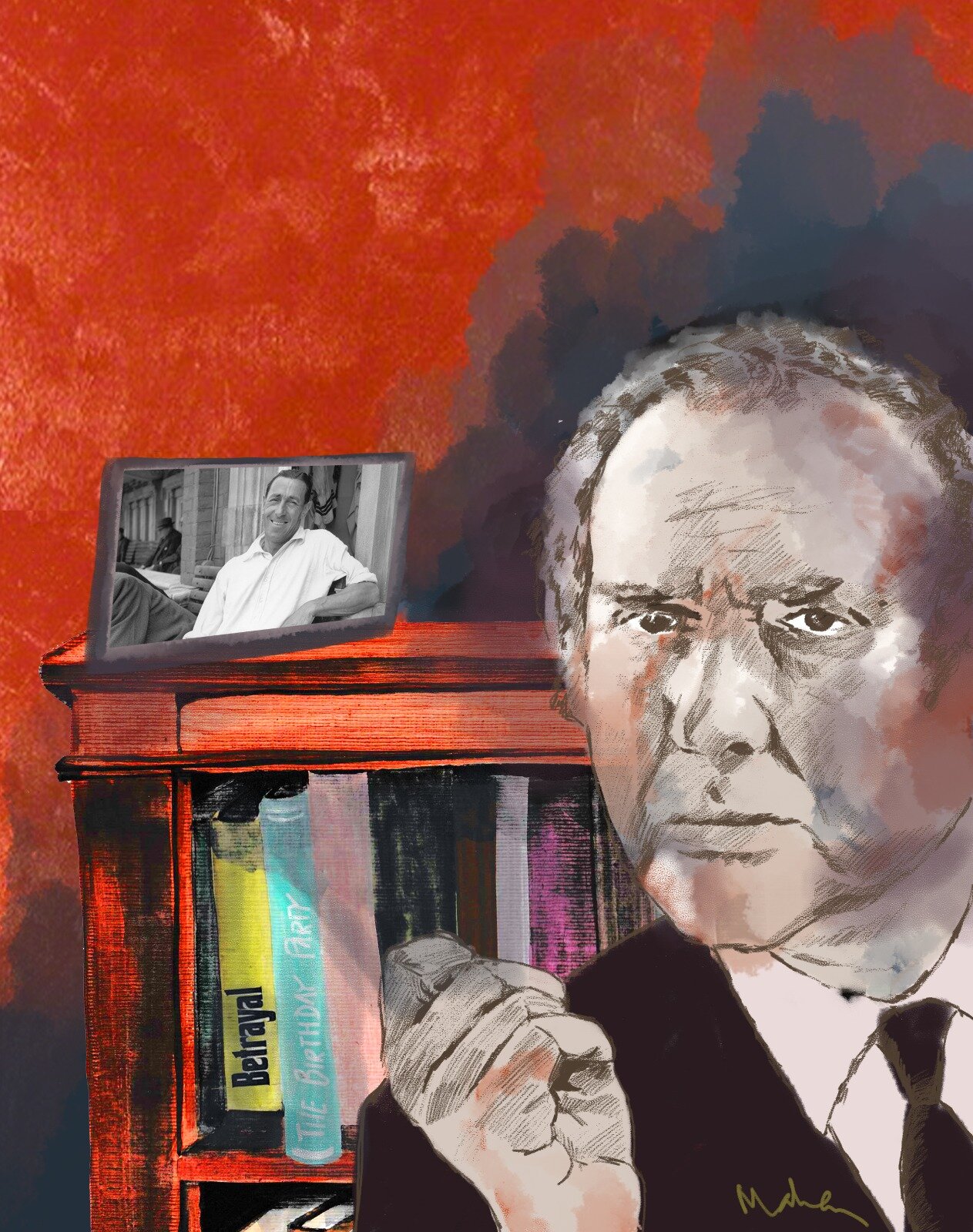by Arunabha Sengupta
"I tend to think that cricket is the greatest thing that God created on earth, certainly greater than sex, although sex isn't too bad either." Those are the words of Harold Pinter.
One look at his study and the cricket fan in him would reveal himself. There was an oil portrait, he himself in pristine whites, driving to the on side. The shelves were full of cricket books, including the complete set of Wisdens. Of course there were plenty of photographs and cricketana linked to the Gaieties, the wandering club which formed such an important part of his life and which he captained himself.
And when you came down the stairs you could see a wall decorated with a framed autograph of WG Grace.
Pinter was not only a Nobel Prize winning playwright, he was a cricket tragic.
He watched cricket for the first time as the Second World War raged. “At one point we were all evacuated from our house when there was an air raid. We opened the door and our garden, with this large lilac tree, was alight all along the back wall. We were evacuated straight away. Though not before I took my cricket bat.”
As a young lad in Hackney, he would get up at five in the morning and walk to the nearby River Lea with his close friend Mick Goldstein. A tree would be set up as the wicket. And the cricket would begin. Harold and Mick took turns to become Lindwall and Hutton, Compton and Miller.
It was Len Hutton on whom he doted. Pinter saw his hero for the first time as an evacuee in Yorkshire.
Later, in an interview to Guardian, he said: “I was sent for a brief period to Leeds, and I went to see some kind of game up at Headingley. I caught Len Hutton, who was on leave from the army. I fell in love with him at first sight, as it were. I became passionate about Yorkshire because of Hutton really. It is my great regret that I could have met him, but I was too shy."
He later remembered going to Lord's, walking through Regent's Park on his way, one early evening. “And coming away from Lord's there was another schoolboy, in uniform, and he saw me, and said: ‘Hutton's out!’ I could have killed him.”
He did not continue to play cricket as he emerged into youth, but took it up again as a family man with a son of about nine. “I took my son, who was then about nine, to school for nets and I watched him be coached. I suddenly thought 'well why don't I have a net myself?' I hadn't played since school you know, but the next week I got some whites and started to have some coaching from a fellow called Fred Pelozzi, a cricketer of Italian descent but he was a cockney actually, and he was a bloody good player. And after a few weeks he said 'why don't you come and play for the club I play for?' So I said 'OK'.”
Thus started his stint for Gaieties and he started with a first ball duck. But eventually he became captain. And it was not just a game. The drama within, the game within the game, appealed to the playwright. "Drama happens in big cricket matches. But also in small cricket matches. When we play, my club, each thing that happens is dramatic: the gasps that follow a miss at slip, the anger of an lbw decision that is turned down. It is the same thing wherever you play, really."
He was a regular visitor to Lord’s, watching cricket from a box. He travelled overseas to watch cricket as well. But Gaieties remained a central feature of his life.
Gaieties Cricket Club, wandering side which plays cricket in the Home Counties, was founded in 1937 by the Music hall artist Lupino Lane. Lane’s company was at that time based at the Gaiety Theatre, in London.
After the death of Lane the club was captained by his son Lauri Lupino Lane. In 1972, Lane junior was succeeded by Pinter, who also became Chairman.
The prize recruit to Gaieties was the Somerset and England cricketer Arthur Wellard. The pace bowler and big hitter was still hitting sixes for Gaieties at the age of 72. The tribute Pinter wrote to Wellard when the latter passed away in 1980 remains one of the classics of cricket literature. Though not a book, it was selected by Stephen Chalke among the ten best written works of cricket of all time.
Harold Pinter was born on 10 October 1930
Illustration: Maha

